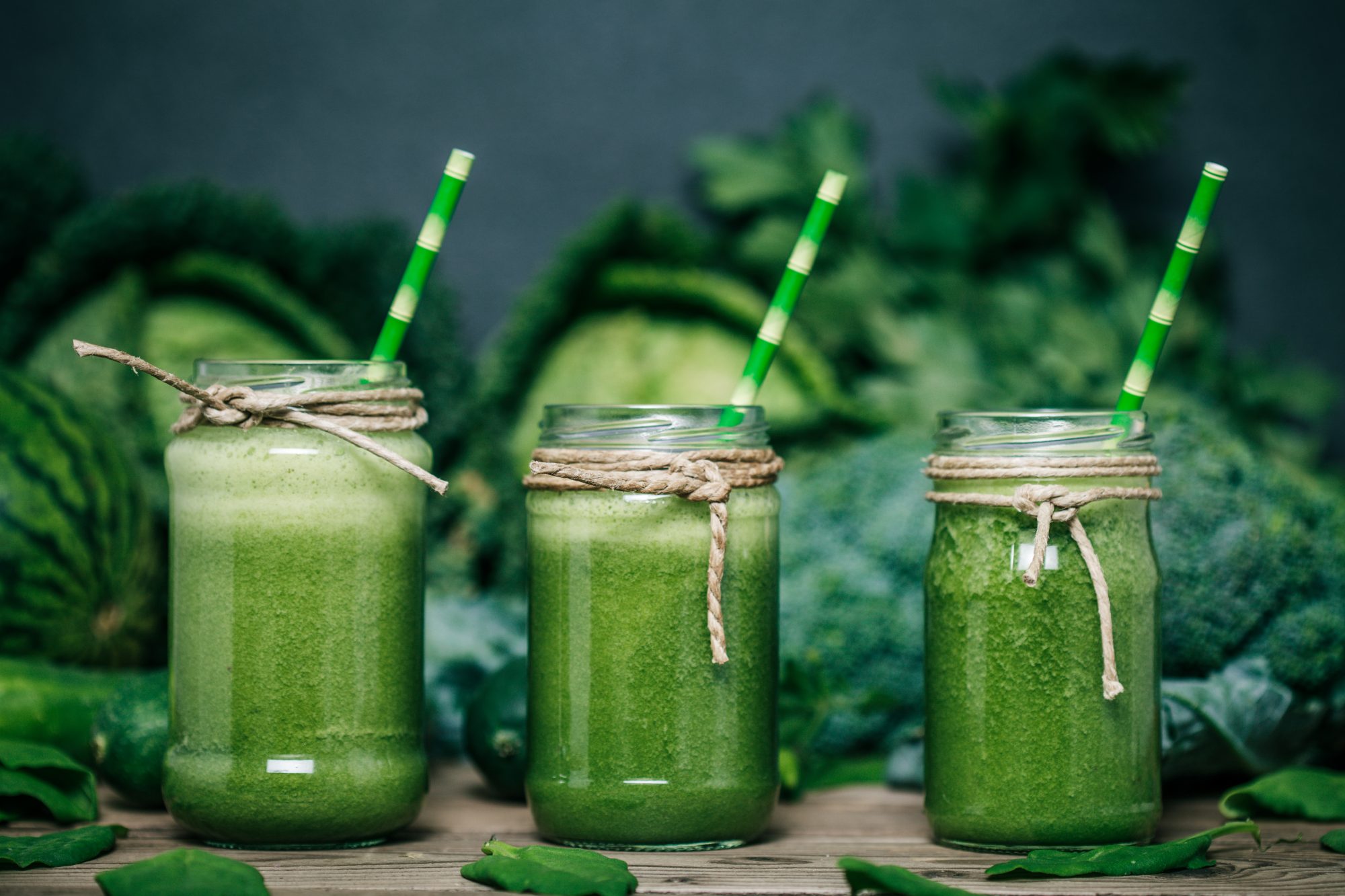If we told you that greens are one of the most powerful and interesting foods on the planet, would you believe us? If we told you that greens were veggie superheroes, would you believe us?
Maybe not.
But what if Purium product formulator and Co-Owner Dave Sandoval told you?
Dave Sandoval conducted extensive research and compiled a directory of plant-based knowledge with his own green food experiences in his book, The Green Foods Bi ble. Green foods are without question the basis of life on earth as we know it and without them we could not exist. Read on to discover more about the role green foods have on our bodies and their healing qualities.
ble. Green foods are without question the basis of life on earth as we know it and without them we could not exist. Read on to discover more about the role green foods have on our bodies and their healing qualities.
WHAT ARE GREEN FOODS?
Green foods are those edible shoots, leaves, or cells of land and water plants that contain a natural green pigment called chlorophyll, the “blood of plants”. This vital element is not a vitamin, mineral, or even an antioxidant. It’s purpose is to perform photosynthesis; a complex series of biological transmutations that transforms sunlight, water, and carbon dioxide or carbon monoxide, into ozone, oxygen, and the energy for plants to grow and be nourished.
To purchase The Green Foods Bible and learn more about the wonderful world of plant nutrition, click here.
Chlorophyll in Green Foods
The fact that green foods contain chlorophyll is perhaps linked to their immense health benefits. We have learned that wherever you find green pigment in plants you also find blocking, suppressing, and repairing agents that humans can benefit from, including enzymes, antioxidants, and bioflavonoids.
Chlorophyll has the ability to bond to tumor tissue and occupy the receptor sites needed to attract food and attack cancer cells (Chernomorsky ’95, Sarkas ‘94). Yet another study shows that derivatives of chlorophyll have a cytotoxic and cytostatic effect to reduce tumor activity.
So we need to ask, is there a correlation between the chlorophyll content of a food and it’s value to the body?
According to the research papers we have reviewed, several mechanisms in green food act to positively block the damaging effects of our modern lifestyle. For example, a diet high in red meat but lacking green vegetables creates an increased risk of colon cancer. However, the colonocytes that grow as a result of the cytotoxicity were inhibited greatly when green foods were consumed in the same meal or general timeline. In contrast to papers published by the Linus Pauling Institute, chlorophyll from plants affected this benefit while liquid chlorophyllin complex (a synthetic version) did not.
Below you will find a list of 6 foods and their chlorophyll content by percentage:
Iceberg lettuce 0.1%
Romaine lettuce 0.25%
Wheatgrass 0.5%
Spirulina/Alfalfa 1.0%
Chlorella 2.5%
Below is an overview of the variety of green foods available and the growing body of scientific evidence that may prove once and for all that green foods are the closest thing to a cure-all that exists in the world today.
Sea-Kelp
- Offers a healthy dose of iodine: Just a little bit of iodine from whole foods is good for thyroid function (while a lot may be toxic).
Chlorella vs Spirulina
Some people confuse chlorella and spirulina. Even though they are both sea algae, they are actually quite different from each other.
Chlorella
- Grows in freshwater
- A single-cell organism with a hard cell wall, containing more chlorophyll than other plants
- Contains ribonucleic acid that does not mutate helping protect your body against radiation, aging, and cellular disturbances. In addition, this green may help chelate heavy metals.
Spirulina
- Grows in semi-salty water
- Multi-cell organism with a soft cell wall made of glycogen to fuel of our cells
- When that glycogen dissolves, it releases massive amounts of protein, healthy fats, vitamins (A, B, C, E), minerals and antioxidants.
Cereal Grasses
- Contains natural silica which helps strengthen connective tissues
- Contains helpful enzymes, like superoxide dismutase which help repair damage to your cells.
Alfalfa
- Dark leafy legume that can live to be over 100 years old and its roots can reach down to over 40 feet
- Typically used for horse and cattle food, it is also the source of liquid chlorophyll products. It has perhaps the HIGHEST chlorophyll content of all edible land plants.
- Includes an anti-inflammatory protein that may help with the pain of arthritis
Sprouts
- Contain sulfur compounds
- Nutrient-rich
Cruciferous Vegetables
- Broccoli, kale, cabbage, collard greens and more.
- Contain methylsulfonylmethane (MSM) which encourages healthy joint health and your body’s reaction to pain.
- Help support the body’s immune defense system
Barley leaf juice (Hordeum vulgare)
- May help prevent or even treat damaged cells. Dr. Yasuo Hotta of UCSD has shown in-vitro studies that cells exposed to radiation equal to dozens of x-rays, reversed the damage done to its DNA after being bathed in an extract of green barley juice.
- May help with diabetes, energy levels and to keep organs healthy.
Wheatgrass (Triticum aestivum)
- Shown to be effective in the treatment of ulcerative colitis in studies done by Scandinavian researchers.9
- One study from Rutgers University shows that Kamut grass juice powder contains significant staying power as an antioxidant. (Rutgers University, Center for Advanced Food Technology. Irvine Analytical- Lab Report)
To watch Dave explain the greens above click here.
Greens and Cognitive Decline
As we age, our diets become more and more important and including greens in your diet is vital to your overall health!
People with mild cognitive impairment are more forgetful than normal for their age, but they don’t experience other cognitive problems associated with dementia, such as disorientation or confusion about routine activities. They are generally able to live independently but may be less active socially.
A study published by the journal Neurology found that green veggies have a positive effect on our brain (go figure). In fact, they found that one serving of greens a day could help slow cognitive decline due to aging for older people. What does this mean? If you ate one serving of greens every day, at age 60, your brain could be functioning as if you were at a younger age compared to your same-aged peers.
The researchers reached this conclusion after studying 960 participants, aged 59-99. The participants were split into 2 groups: Group A consumed one veggie serving every day and Group B did not consume veggies. Before the 5-year analysis began, Group A tested at a higher cognitive level.
At the end of the five years, both groups were given a cognitive performance test, which showed that Group A’s brains were functioning as if they were younger than Group B. The memory of Group A’s participants only declined half as much compared to Group B. The result stood the same even after the researchers factored in outside sources, such as education, exercise and alcohol consumption.
Part of this could be due to specific nutrients found in greens, such as vitamin E, folic acid, and vitamin K1. These nutrients can help protect the brain against inflammation and toxic proteins, such as beta-amyloid.
Alkalizing Power
Greens help alkalize & detox, grabbing on to toxins and releasing them from the body.
Body level pH has stirred quite the conversation in the health community. For those who may not know, pH is the balance (based on a scale of 0 to 14) of acidic and alkaline solutions, describing how many hydrogen ions or hydroxyl ions are present. Your body’s pH can be measured by a blood or urine test and, ideally, it should normally be slightly alkaline; however, other parts of your body (like your stomach) might be more acidic in order to help with body processes.
A preliminary literature review suggests that pH plays a role in protecting your body from chronic diseases, and helping your cells, cell membranes and overall body function. In fact, one study connected a more alkaline diet with preservation of muscle tissue due to a decreased acid load.
Nutritionists and naturopaths consider greens to be one of the best ways to alkalize the body. Greens are said to neutralize acid in your blood, helping to alkalize.
Some of the greens considered to be alkalizers include:
- broccoli
- cauliflower
- asparagus
- celery
- spinach
- kale
Purium Greens on the GO!
Here at Purium, we are driven by our mission. In fact, our products are our second to this mission. What does this mean? Well, if we formulate a product and it does not measure up to our standards, we will not release it. While other companies may focus on getting sub-par products out to their consumers, we choose to only release products that will benefit our consumers.
Because of this, you can trust that our green plant-based products are pure + premium, only made from non-GMO ingredients with a high nutrient value.
Don’t let your busy lifestyle keep you from getting proper nutrition! Very few of us are getting the bare minimum of 5 servings per day of our greens, and much less the optimal 10 servings per day of fruits and vegetables. Concentrated food powders can help make it much easier to get the nutrition we need.
Dave’s three favorite green Purium products for on-the-go nutrition are:
In a perfect world, everyone would grow their own “rainbow” garden so that you can eat and juice a wide variety of different color nutrient-rich veggies and fruits. But the reality is that not many of us have the space and time to live solely out of our own garden. In today’s world, where our fruits and veggies are not as nutrient dense as our great-grandparents due to steady soil erosion among other factors. Luckily Purium powdered veggie and fruit blends are healthy fast food that can make a big difference in your health!
The recommended use of Purium Health Products is not intended to diagnose, treat, cure or prevent any disease or medical condition. Always consult with a professional medical practitioner before taking any dietary supplement, especially if pregnant, nursing, taking prescription medications or under a doctor’s medical care.
References
- Organic By Nature, Inc. Laboratory Analysis 1999.
- deVogel J, et al, “Green vegetables, red meat and colon cancer: chlorophyll prevents the cytotoxic and hyperproliferative effects in rat colon,” Carcinogenesis 2005 Feb; 26(2): 387-93; 2005 “Natural Chlorophyll but Not Chlorophyllin Prevents Heme-Induced Cytotoxic and Hyperproliferative Effects in Rat Colon”. The American Journal for Nutritional Sciences J. Nutr. 135:1995-2000, August 2005.
- Graham, W., Kohler, G. and Schnabel, C. 1940. “Grass As A Food: Vitamin Content”. Paper presented April 10, 1940, at the 99th meeting of The American Chemical Society.
- Fahey and Yuesheng Zhang, M.D., Ph.D. “Discovery of sulforaphane’s chemoprotective properties” Proceedings of the National Academy of Sciences 1992; Asai, A., M. Terasaki, and A. Nagao, An epoxide-furanoid rearrangement of spinach neoxanthin occurs in the gastrointestinal tract of mice and in vitro: formation and cytostatic activity of neochrome sterisomers. J Nutr, 2004. 134(9): 2237-43; Wang, L., et al., Targeting cell cycle machinery as a molecular mechanism of sulforaphane in prostate cancer prevention. Int J Oncol, 2004. 24(1): 187-92.; Walker M, Aronson KJ, King W, et al. Dietary Patterns and risk prostate cancer in Ontario, Canada. International Journal of Cancer, Sept. 10, 2005., 116: 592-598
- Hotta, Y. 1984. “Stimulation of DNA Repair-synthesis by P4-D I, One of the Novel Components of Barley Extracts.” Lecture given in Honolulu, Hawaii
- Tanaka K, Tomita Y, Tsuruta M, et al, “Oral administration of Chlorella vulgaris augments concomitant anti-tumor immunity,” Immunopharmacol Immunotoxicol 1990;12(2):277-91
- William T. Shearer, M.D., Ph.D., professor, pediatrics and immunology, Baylor College of Medicine, Houston; Christopher Randolph, M.D., associate clinical professor, allergy and immunology, Yale University, New Haven, Conn.; Frank Edward Myers III, M.A., C.I.C., epidemiologist, Scripps Mercy Hospital, San Diego; November 2003 Journal of Allergy and Clinical Immunology
- Carrageenan Is a Potent Inhibitor of Papillomavirus Infection (PLoS Pathogens 2 (7): e69. doi:10.1371/journal.ppat.0020069); Carrageenan induces interleukin-8 production through distinct Bcl10 pathway in normal human colonic epithelial cells (Borthakur A. et al. Am J Physiol Gastrointest Liver Physiol (2007) 292:G829-G838).
- Ben-Arye E, et al, “Wheat grass juice in the treatment of active distal ulcerative colitis,” Scandinavian Journal of Gastroenterology 2002;37(4):444-449.
- Ainge, G. McGhie, T. Color in Fruit of the Genus Actinidia: Carotenoid and Chlorophyll Compositions. Journal of Agriculture and Food Chemistry., 50: 117-121, 2002; Arbogast, D., Bailey, G., Breinholt, V. Hendricks, J. and Pereira, C. Dietary Chlorophyllin Is a Potent Inhibitor of Aflatoxin B1 Hepatocarcinogenesis in Rainbow Trout. Cancer Research., 55: 57-62, 1995; Chernomorsky, S., Poretz, R., and Segelman, A. Effect of Dietary Chlorophyll Derivatives on mutagenesis and Tumor Cell Growth. Teratogenesis, Carcinogenesis, and Mutagenesis., 79: 313-322, 1999;Hortensteiner, S., Ougham, H., and Thomas, H. Ring in the new, Ring out the old. IGER Innovations., Taiz, L., and Zeigner, E. Plant Physiology. The Benjamin/Cummings Publishing Company Inc. Redwood City, CA. :179-218, 1991.; Jane Higdon, Ph.D., Linus Pauling Institute., Oregon State University., Copyright 2004-2008 Linus Pauling Institute.



